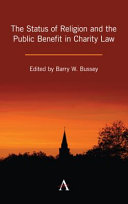

Most ebook files are in PDF format, so you can easily read them using various software such as Foxit Reader or directly on the Google Chrome browser.
Some ebook files are released by publishers in other formats such as .awz, .mobi, .epub, .fb2, etc. You may need to install specific software to read these formats on mobile/PC, such as Calibre.
Please read the tutorial at this link: https://ebookbell.com/faq
We offer FREE conversion to the popular formats you request; however, this may take some time. Therefore, right after payment, please email us, and we will try to provide the service as quickly as possible.
For some exceptional file formats or broken links (if any), please refrain from opening any disputes. Instead, email us first, and we will try to assist within a maximum of 6 hours.
EbookBell Team

4.8
74 reviewsIn the process, they also confront more fundamental, sociological or philosophical questions on the very nature and role of religion in a secular society that would deny any space for religious communities outside their houses of worship. In other words, this book is concerned with the place of religion - and religious institutions - in contemporary society.
It represents a series of concerns about the proper role of the state in relation to the differing beliefs of citizens - some of which will quite rightly manifest in actions to benefit the wider society. This debate, then, naturally engages with broader issues related to secularism, civic engagement and liberal democratic freedoms. NP] Historically, we have presumed that religion is beneficial. Any suggestion that would either remove the advancement of religion, or advocate the removal of other benefits granted to religious institutions (such as tax exempt status) is predicated on the contrary assumption that religion provides no benefit, or if it does, it only benefits congregants on a Sunday morning (or other holy day).
Further, our cultural moment, with its attention to diversity and equality, has put the charitable status of religious communities in jeopardy unless they conform to the normative moral commitments of secular elites in academia, media and the legal profession. This exposes a deeply flawed notion of religion, as discussed in thi